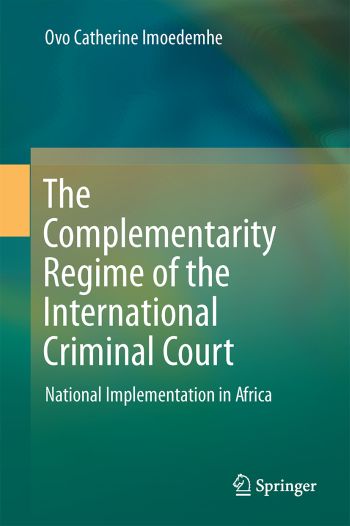
This book analyses how the complementarity regime of the ICC's Rome Statute can be implemented in member states, specifically focusing on African states and Nigeria. Complementarity is the principle that outlines the primacy of national courts to prosecute a defendant unless a state is 'unwilling' or 'genuinely unable to act', assuming the crime is of a 'sufficient gravity' for the International Criminal Court (ICC). It is stipulated in the Rome Statute without a clear and comprehensive framework for how states can implement it.
The book proposes such a framework and argues that a mutually inclusive interpretation and application of complementarity would increase domestic prosecutions and reduce self-referrals to the ICC. African states need to have an appropriate legal framework in place, implementing legislation and institutional capacity as well as credible judiciaries to investigate and prosecute international crimes. The mutually inclusive interpretation of the principle of complementarity would entail the ICC providing assistance to states in instituting this framework while being available to fill the gaps until such time as these states meet a defined threshold of institutional preparedness sufficient to acquire domestic prosecution. The minimum complementarity threshold includes proscribing the Rome Statute crimes in domestic criminal law and ensuring the institutional preparedness to conduct complementarity-based prosecution of international crimes. Furthermore, it assists the ICC in ensuring consistency in its interpretation of complementarity.